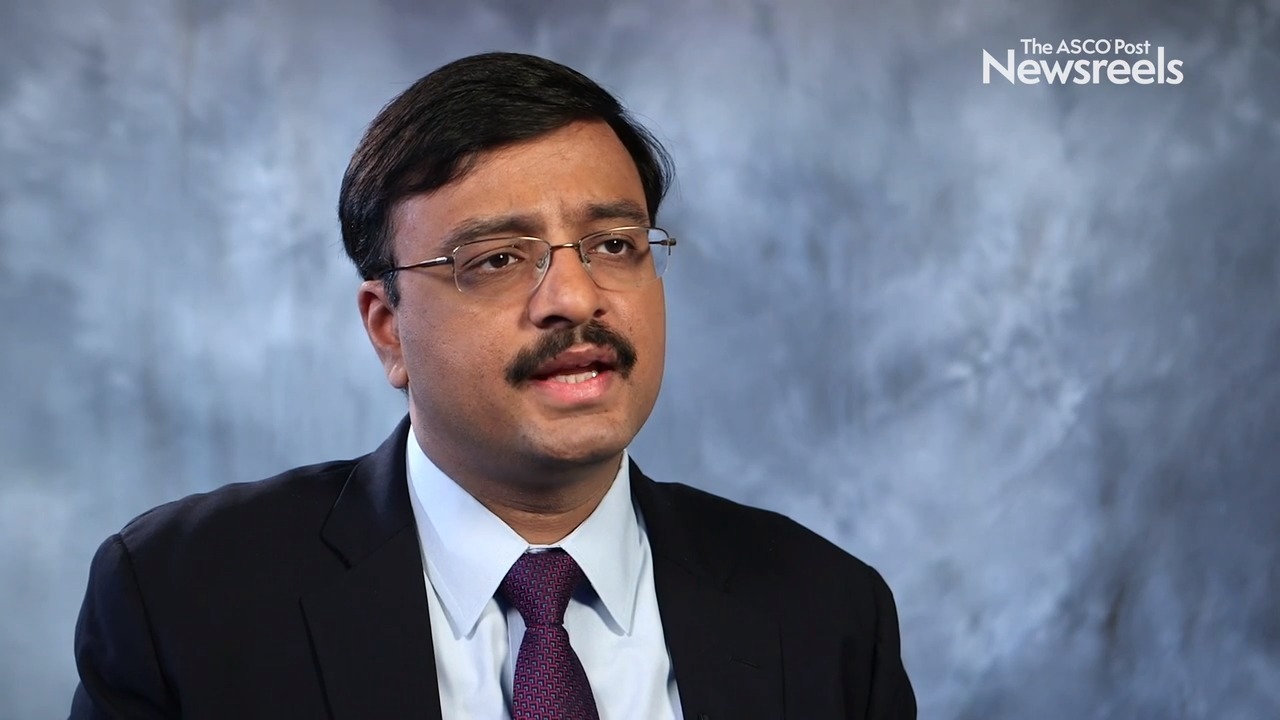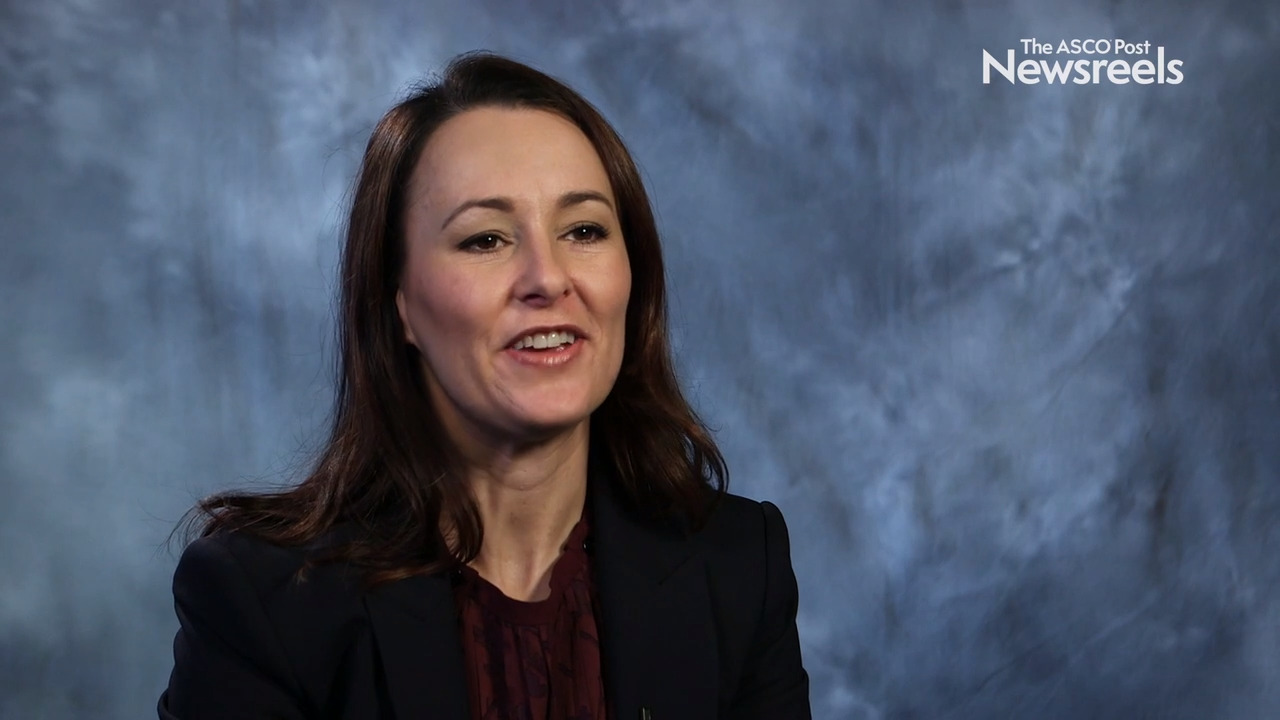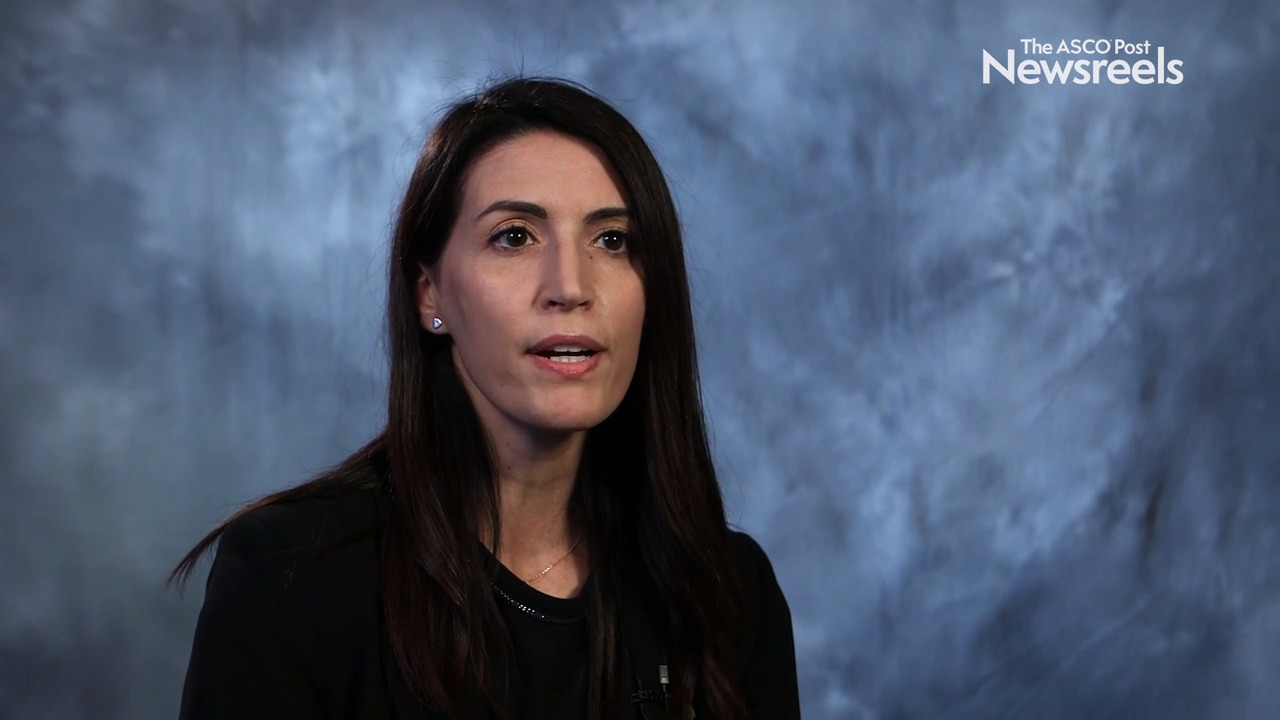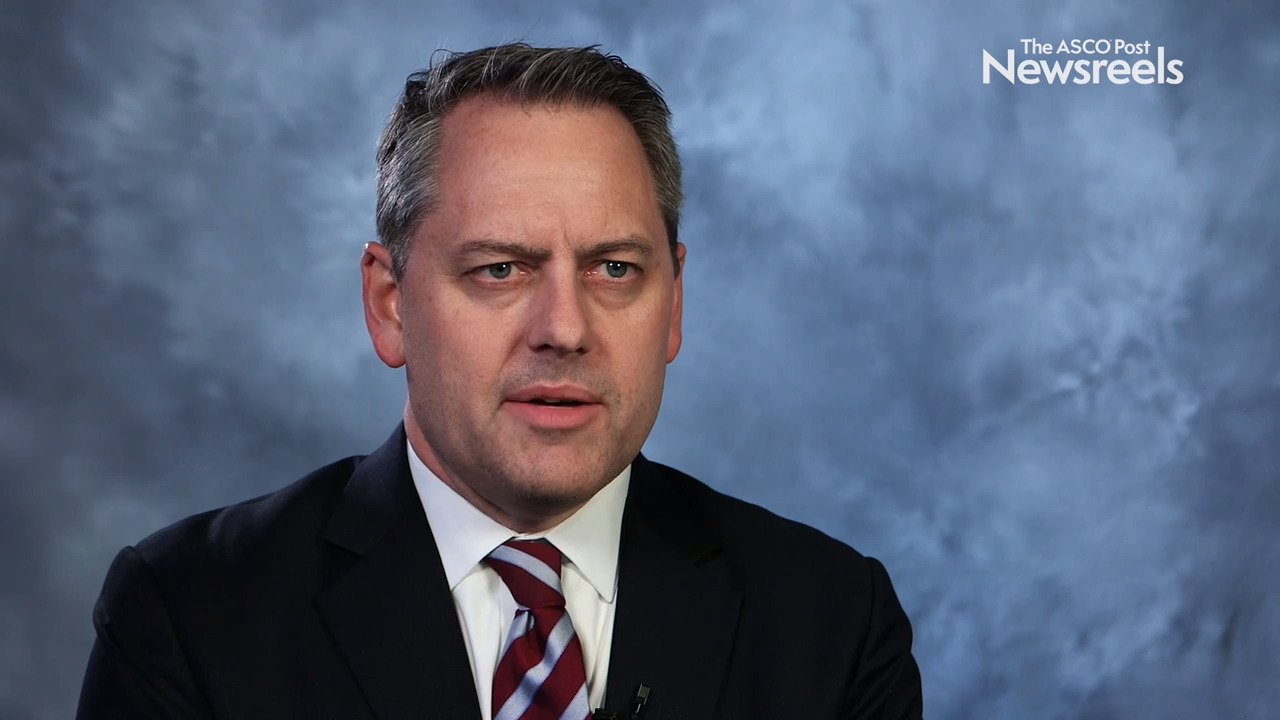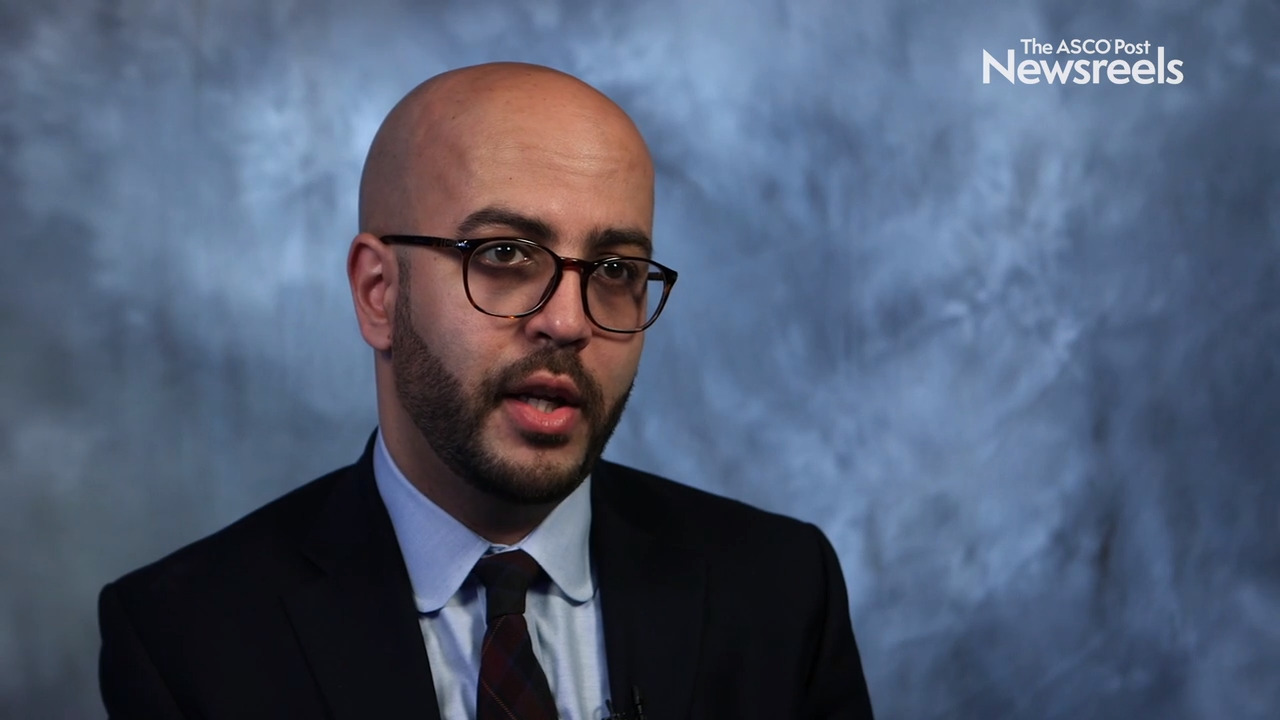Mikkael A. Sekeres, MD, on Newly Diagnosed Hematologic Malignancies: Early Trial Findings on Glasdegib Plus Azacitidine
2019 ASH Annual Meeting & Exposition
Mikkael A. Sekeres, MD, of the Cleveland Clinic, discusses results of a phase Ib study of glasdegib in combination with azacitidine, which showed activity in patients with untreated myelodysplastic syndromes, acute myeloid leukemia, and chronic myelomonocytic leukemia who are ineligible for intensive chemotherapy (Abstract 177).
Nitin Jain, MD, of The University of Texas MD Anderson Cancer Center, discusses findings from two studies showing that the combination of ibrutinib and venetoclax is an effective chemotherapy-free oral regimen for patients with high-risk, previously untreated chronic lymphocytic leukemia (Abstract 34).
Loretta J. Nastoupil, MD, of The University of Texas MD Anderson Cancer Center, discusses phase II study findings that showed obinutuzumab in combination with lenalidomide for patients with previously untreated, high tumor burden follicular lymphoma was associated with improved outcomes (Abstract 125).
Ilaria Iacobucci, PhD, of St. Jude Children’s Research Hospital, discusses her work to more accurately define mutation subtypes in acute myeloid leukemia and myelodysplastic syndromes, as well as the implications for diagnosis, prognosis, and treatment (Abstract LBA-4 ).
Jeff P. Sharman, MD, of the Willamette Valley Cancer Institute and US Oncology Research, discusses phase III findings from the ELEVATE TN study, which showed that acalabrutinib plus obinutuzumab and acalabrutinib monotherapy improved progression-free survival in patients with treatment-naive chronic lymphocytic leukemia (Abstract 31).
Mark Bustoros, MD, of Dana-Farber Cancer Institute, discusses phase II study results showing that the combination of ixazomib, lenalidomide, and dexamethasone is effective in patients with high-risk smoldering disease, with a high response rate, convenient schedule, and manageable toxicity. Longer follow-up for disease outcome is ongoing (Abstract 580).
